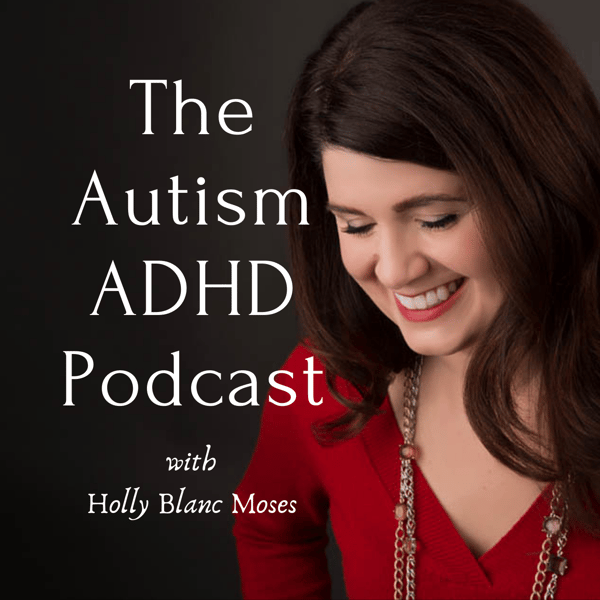ADHD & Emotional Dysregulation
THE AUTISM ADHD PODCAST
Holly Blanc Moses
4.8 • 650 Ratings
🗓️ 12 July 2023
⏱️ 16 minutes
🧾️ Download transcript
Summary
Thanks for joining me today! We are chatting about why emotional dysregulation can be BIG for children and teens diagnosed with ADHD. We'll also talk about effective ways to support these amazing kids:)
❤️ Holly- The Mom/Psychologist Who Gets It
Learn more about Holly's private practice in NC
Learn more about Holly's courses
⭐️ Get to Know my Child Guide
Parents, get your free "Get to Know my Child Guide" here
Educators, get your free "Get to Know my Child Guide" here
Therapists get your free "Get to Know my Child Guide" here
⭐️Behavior Detective Guide
Parents - Get your free Behavior Detective Guide
Therapists - Get your free Behavior Detective Guide
Educators - Get your free Behavior Detective Guide
⭐️Join the Facebook Groups
Parents, Come on over and join the Autism ADHD Facebook Group for Parents
Professionals, Join the Facebook Group for Therapists and Educators
⭐️ Social Success Guide
Parents - Get your free Social Success Guide
Transcript
Click on a timestamp to play from that location
| 0:00.0 | Welcome to the Autism, ADHD podcast. I am so happy that you join me today. I want to take a moment and ask for your help. Please take just a second and give the podcast a five-star review. |
| 0:19.5 | This will help me continue the podcast and keep bringing you |
| 0:23.3 | helpful information. Thanks so much again for taking the time to give that five-star review. Now, |
| 0:29.9 | let's get started. Hi, everybody. Thank you for joining me today. We are going to talk about emotional |
| 0:39.9 | dysregulation in ADHD. So ADHD can definitely be challenging as it can impact all areas of |
| 0:49.1 | life. I know this because I have ADHD. My kids have ADHD and so do most of my clients. |
| 0:57.2 | When people most think about ADHD, |
| 1:00.3 | they can kind of focus on the struggles with attention and hyperactivity. |
| 1:05.8 | It's important to recognize another significant part of ADHD, which is emotional dysregulation. |
| 1:15.1 | The manual that qualified professionals use to diagnose is the DSM. |
| 1:20.6 | And according to the DSM, emotional dysregulation or emotional impulsivity commonly occurs in children and adults with ADHD. |
| 1:32.3 | Individuals with ADHD self-report and are described by others as being quick to anger, |
| 1:40.2 | easily frustrated, and overactive emotionally. |
| 1:45.3 | Emotional dysregulation refers to the struggle and effectively recognizing, |
| 1:51.5 | understanding, and managing emotions. So in people with ADHD, this can lead to |
| 1:57.4 | intense emotional experiences and difficulty in finding that balance. |
| 2:03.9 | In today's episode, we're talking about that connection, the connection between ADHD |
| 2:08.9 | and emotional dysregulation. We're going to talk about what to look for and also some |
| 2:17.2 | support strategies. So this emotional dysregulation, |
| 2:21.8 | it can show up in several ways for people. So let's kind of chat about that. Number one, |
| 2:29.4 | executive functioning challenges can definitely impact important parts of our lives. |
| 2:36.2 | Struggles with planning, starting a task, self-awareness, organizing, and in-pulse control. |
... |
Please login to see the full transcript.
Disclaimer: The podcast and artwork embedded on this page are from Holly Blanc Moses, and are the property of its owner and not affiliated with or endorsed by Tapesearch.
Generated transcripts are the property of Holly Blanc Moses and are distributed freely under the Fair Use doctrine. Transcripts generated by Tapesearch are not guaranteed to be accurate.
Copyright © Tapesearch 2025.

